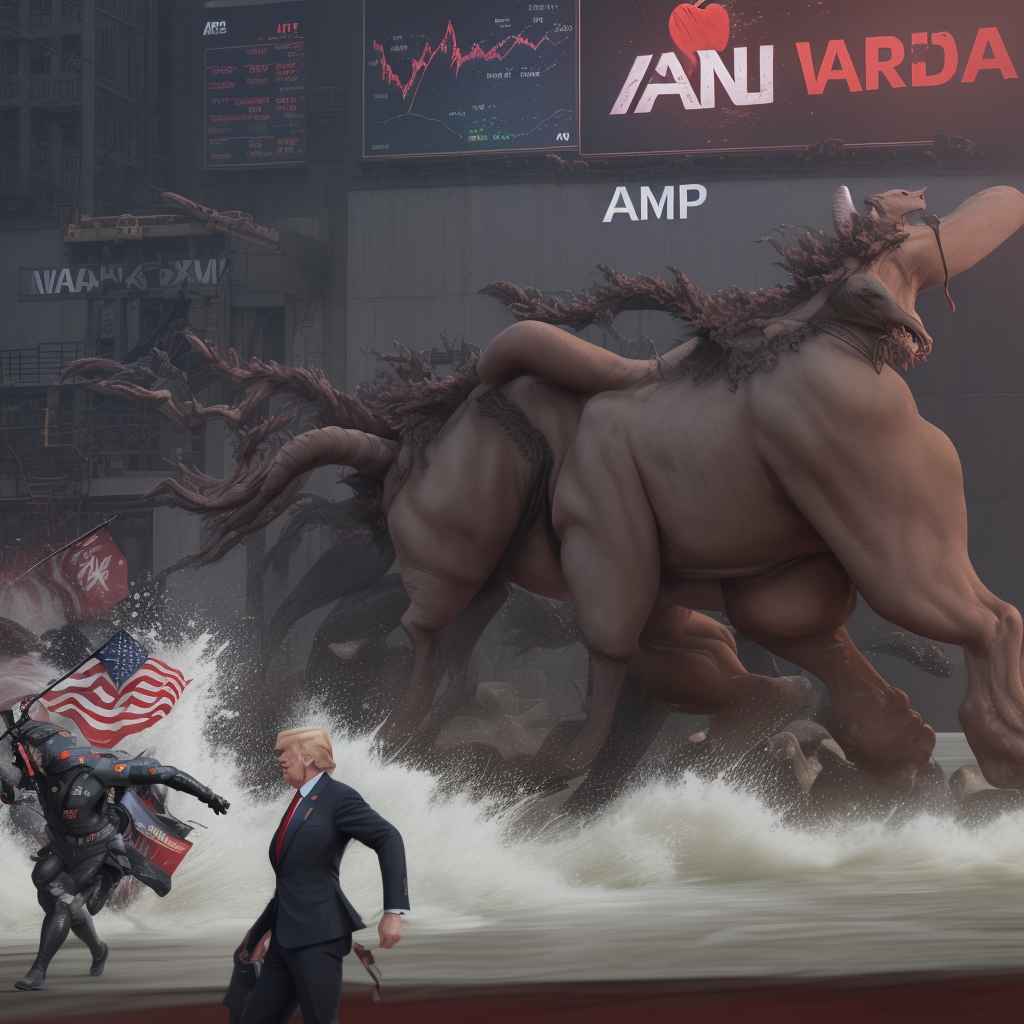
Tech Titans Reap Benefits As US-China Trade Tensions Ease, Tariffs Soar
Markets Take Off as Trump Announces 90-Day Tariff Pause for Non-Retalating Nations, Slaps China with 125% Duty
April 25, 2019 - In a surprise move, President Donald Trump announced a 90-day tariff pause for countries that do not retaliate against the United States, sending markets soaring. Simultaneously, the White House slapped China with a 125% tariff on $200 billion worth of imports.
The tariff pause, effective immediately, applies to countries that have not taken retaliatory measures against the U.S. in response to the Trump administration's trade policies. The move is seen as an attempt to incentivize nations to remain neutral in the ongoing trade war.
"This is a big day for trade," Trump said during a press conference at the White House. "We're putting America first, and we're making sure that countries that don't retaliate against us are rewarded."
The tariff pause does not apply to China, which has been a major target of Trump's trade policies. The U.S. will impose a 25% tariff on $200 billion worth of Chinese goods, effective June 1. The move is a significant escalation in the trade war between the two nations.
China has been accused of intellectual property theft, forced technology transfers, and other unfair trade practices. The Trump administration has been seeking to address these issues through trade negotiations, but talks have stalled in recent weeks.
The markets reacted positively to the news, with the Dow Jones Industrial Average surging over 250 points in early trading. The S&P 500 and Nasdaq also rose sharply, with investors relieved that the tariff pause had not led to an immediate increase in duties on other countries.
The move is seen as a tactical ploy by the Trump administration to pressure China into making concessions in trade talks. The U.S. has been seeking a comprehensive trade deal with China, but the two nations have yet to reach an agreement.
The tariff pause and the 125% duty on Chinese goods are seen as a warning to other countries that may be considering retaliatory measures against the U.S. The move is also seen as a way to demonstrate the Trump administration's commitment to its trade policies, even in the face of criticism from lawmakers and business leaders.
The trade war has had significant consequences for the global economy, with many countries feeling the impact of tariffs and retaliatory measures. The U.S. has imposed tariffs on a range of goods, from steel and aluminum to solar panels and washing machines.
The Trump administration has also been seeking to renegotiate trade agreements with other countries, including the North American Free Trade Agreement (NAFTA) and the United States-Mexico-Canada Agreement (USMCA). The administration has been critical of the agreements, which it sees as unfair to the U.S.
The trade war has also had significant consequences for the U.S. economy, with many industries and companies feeling the impact of tariffs and retaliatory measures. The Trump administration has been seeking to address these issues through trade agreements and other measures.
The tariff pause and the 125% duty on Chinese goods are seen as a significant development in the ongoing trade war. The move is likely to have significant consequences for the global economy, and investors will be closely watching developments in the coming days and weeks.